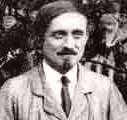 W
WÉmile Armand, pseudonym of Ernest-Lucien Juin Armand, was an influential French individualist anarchist at the beginning of the 20th century and also a dedicated free love/polyamory, intentional community, and pacifist/antimilitarist writer, propagandist and activist. He wrote for and edited the anarchist publications L'Ère nouvelle (1901–1911), L'Anarchie, L'En-Dehors (1922–1939) and L'Unique (1945–1953).
 W
WAlphonse Gallaud de la Pérouse, better known as Zo d'Axa, was a French adventurer, anti-militarist, satirist, journalist, and founder of two of the most legendary French magazines, L'EnDehors and La Feuille. A descendant of the famous French navigator Jean-François de Galaup, comte de Lapérouse, he was one of the most prominent French individualist anarchists at the turn of the 20th century.
 W
WBasch Viktor Vilém, or Victor-Guillaume Basch was a French politician and professor of germanistics and philosophy at the Sorbonne descending from Hungary. He was engaged in the Zionist movement, in the Ligue des droits de l'homme and in Anti-Nazism.
 W
WAnselme Bellegarrigue was a French individualist anarchist. He participated in the French Revolution of 1848, was author and editor of Anarchie, Journal de l'Ordre and Au fait ! Au fait ! Interprétation de l'idée démocratique.
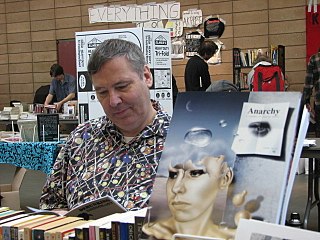 W
WRobert Charles Black Jr. is an American anarchist and author. He is the author of the books The Abolition of Work and Other Essays, Beneath the Underground, Friendly Fire, Anarchy After Leftism, and Defacing the Currency, and numerous political essays.
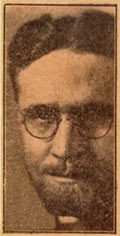 W
WCharles-Auguste Bontemps was a French individualist anarchist, pacifist, freethinker and naturist activist and writer.
 W
WAdolf Brand was a German writer, egoist anarchist, and pioneering campaigner for the acceptance of male bisexuality and homosexuality.
 W
WLev Chernyi was a Russian individualist anarchist theorist, activist and poet, and a leading figure of the Third Russian Revolution. In 1917, Chernyi was released from his political imprisonment by the Imperial Russian regime, and swiftly became one of the leading figures in Russian anarchism. After strongly denouncing the new Bolshevik government in various anarchist publications and joining several underground resistance movements, Chernyi was arrested by the Cheka on a charge of counterfeiting and in 1921 was executed without trial.
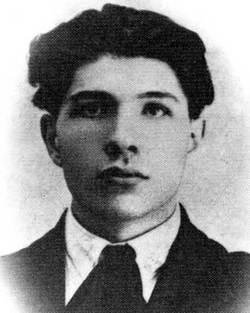 W
WBruno Filippi was an Italian individualist anarchist writer and activist who collaborated in the Italian individualist anarchist magazine Iconoclasta! alongside Renzo Novatore.
 W
WHutchins Harry Hapgood was an American journalist, author and anarchist.
 W
WJoseph Albert was an individualist anarchist militant and writer from France who edited the influential anarchist publication L'Anarchie.
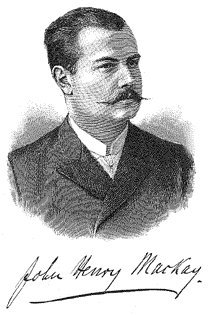 W
WJohn Henry Mackay was an egoist anarchist, thinker and writer. Born in Scotland and raised in Germany, Mackay was the author of Die Anarchisten and Der Freiheitsucher. Mackay was published in the United States in his friend Benjamin Tucker's magazine, Liberty.
 W
WDora Marsden was an English suffragette, editor of literary journals, and philosopher of language. Beginning her career as an activist in the Women's Social and Political Union, Marsden eventually broke off from the suffragist organization in order to found a journal that would provide a space for more radical voices in the movement. Her prime importance lies with her contributions to the suffrage movement, her criticism of the Pankhursts' WSPU, and her radical feminism, via The Freewoman. There are those who also claim she has relevance to the emergence of literary modernism, while others value her contribution to the understanding of Egoism.
 W
WAbele Rizieri Ferrari, better known by the pen name Renzo Novatore, was an Italian individualist anarchist, illegalist and anti-fascist poet, philosopher and militant, now mostly known for his posthumously published book Toward the Creative Nothing and associated with ultra-modernist trends of futurism. His thought was influenced by Max Stirner, Friedrich Nietzsche, Georges Palante, Oscar Wilde, Henrik Ibsen, Arthur Schopenhauer and Charles Baudelaire.
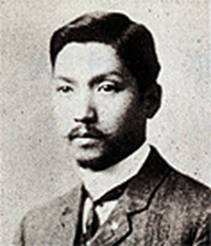 W
WŌsugi Sakae was a radical Japanese anarchist. He published numerous anarchist periodicals, helped translate western anarchist essays into Japanese for the first time, and created Japan's first Esperanto school in 1906. He, Itō Noe, and his nephew were murdered in what became known as the Amakasu incident.
 W
WGeorges Toussaint Léon Palante was a French philosopher and sociologist.
 W
WVicente Rojas Lizcano, known as Biófilo Panclasta, was a political activist, writer, and Colombian individualist anarchist. In 1904 he began to use the pseudonym by which he was later known: Biófilo, lover of life, and Panclasta, enemy of all. He traveled to more than fifty countries, agitating for anarchist ideas and taking part in worker and union demonstrations, in the course of which he befriended such people as Kropotkin, Maxim Gorky, and Lenin.
 W
WMalfew Seklew was a British Nietzschean known for his promotion of Egoism, particularly in the United States.
 W
WJohann Kaspar Schmidt, known professionally as Max Stirner, was a German post-Hegelian philosopher, dealing mainly with the Hegelian notion of social alienation and self-consciousness. Stirner is often seen as one of the forerunners of nihilism, existentialism, psychoanalytic theory, postmodernism and individualist anarchism.
 W
WJun Tsuji, later Ryūkitsu Mizushima , was a Japanese author: a poet, essayist, playwright, and translator. He has also been described as a Dadaist, nihilist, Epicurean, shakuhachi musician, actor, feminist, and bohemian. He translated Max Stirner's The Ego and Its Own and Cesare Lombroso's The Man of Genius into Japanese.
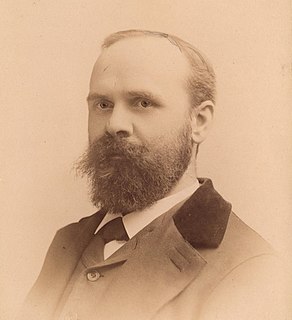 W
WBenjamin Ricketson Tucker was an American anarchist and libertarian socialist. A 19th-century proponent of individualist anarchism which he called "unterrified Jeffersonianism", Tucker was the editor and publisher of the American individualist anarchist periodical Liberty (1881–1908) as well as a member of the socialist First International.
 W
WPeter Lamborn Wilson is an American anarchist author and poet, primarily known for his concept of Temporary Autonomous Zones, short-lived spaces which elude formal structures of control. During the 1970s, Wilson lived in the Middle East, where he explored mysticism and translated Persian texts. Starting from the 1980s he wrote numerous political writings, illustrating his theory of "ontological anarchy". His style of anarchism has drawn criticism for its emphasis on individualism and mysticism, as did some writings where he defended pederasty.